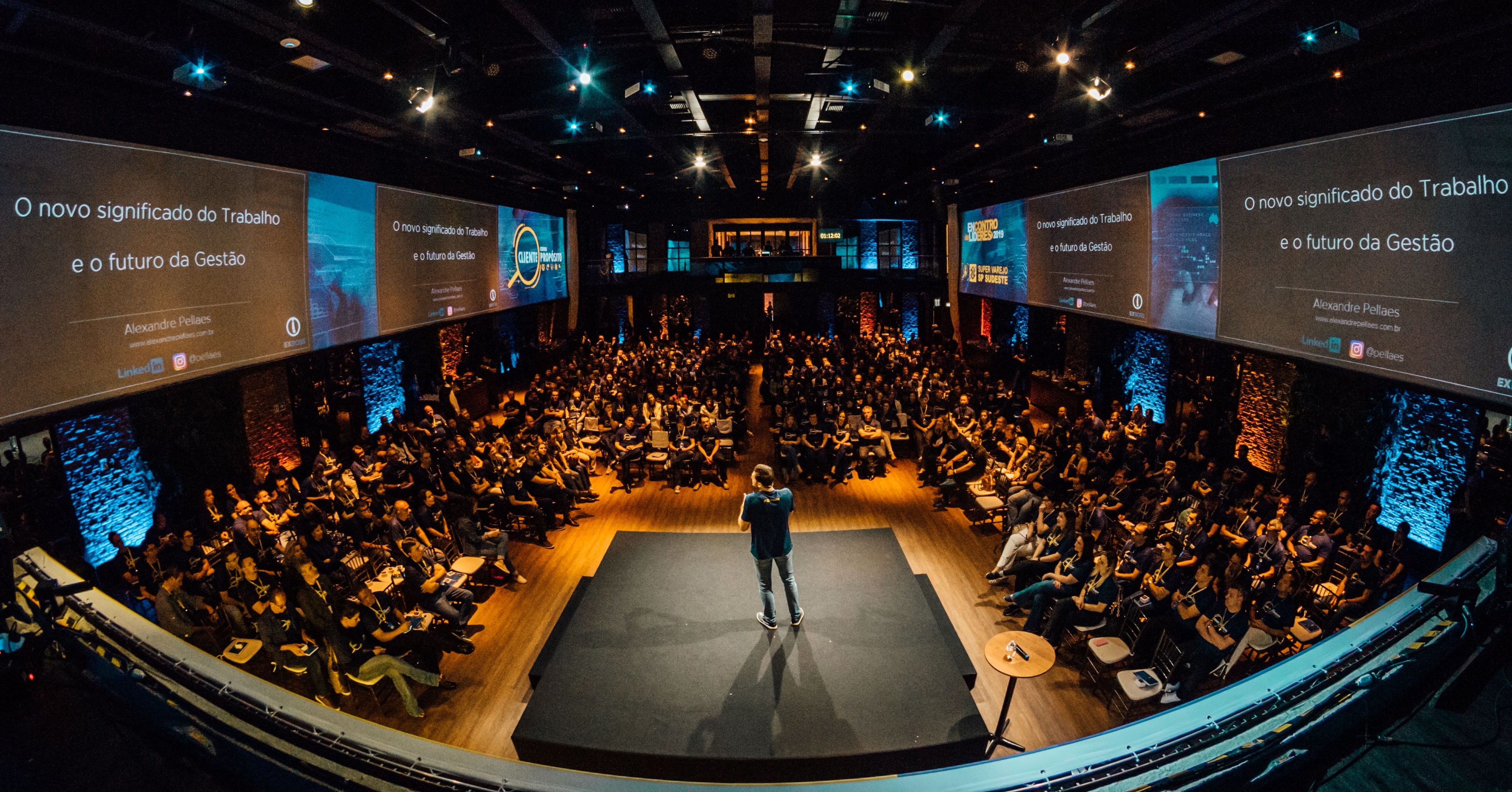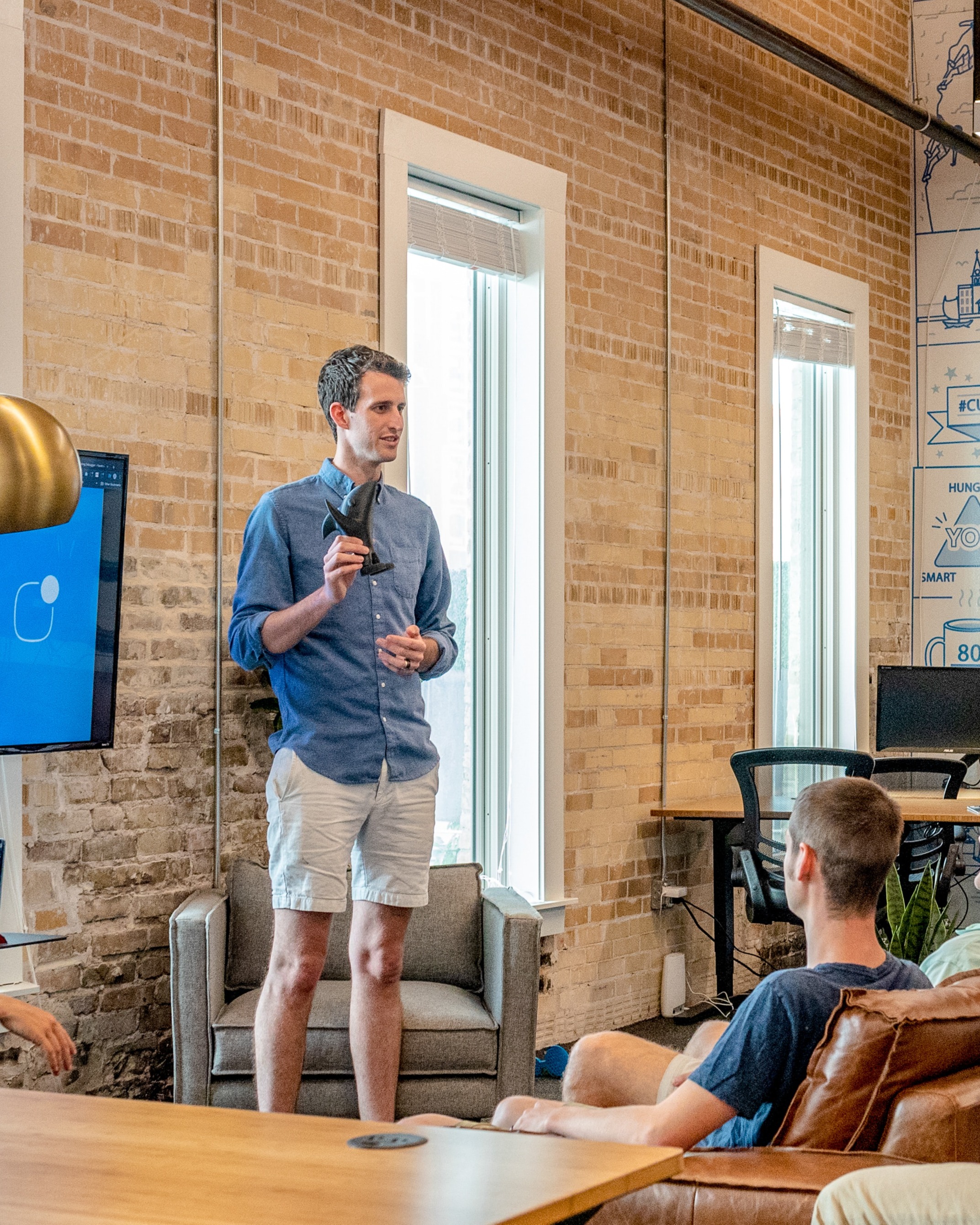In an increasingly complex world where change seems to be the only constant, effective communication and collaboration with large groups of people have become more crucial than ever before.
One way to do this is through large-group facilitation, an approach designed to facilitate dialogue, insight and action planning with large groups of people.
When is large-group facilitation useful?
Large-group facilitation can be particularly useful in different scenarios. It is often used in complex problems that require a diversity of perspectives and expertise to reach a solution.
This can range from strategic planning within an organisation to social issues such as climate change or urban planning.
In addition, this approach can also be valuable in change processes within organisations. Change is often difficult but can be more easily accepted and effectively implemented if people feel they have a voice in the process and that their perspectives and concerns are heard and valued.
Finally, large-group facilitation is also a powerful tool to build support and commitment to decisions or action plans. It allows people to express their ideas and concerns, hear what others think, and collectively reach solutions.
Methods of large-group facilitation
There are several methods for large-group facilitation, each with its own unique processes and benefits. Here are some popular approaches:
-
Open Space Technology: This involves participants putting together their own agenda based on what they want to discuss. This is often used for complex issues where there is no clear solution. Open Space is flexible, encourages the free exchange of ideas and promotes participants' ownership of the outcomes.
-
World Café: This method allows participants to engage in several rounds of discussions in small groups on predetermined questions or topics. It is an excellent way to harness collective knowledge and promote dialogue.
-
Future Search: This method focuses on building a shared understanding of the past and present to create a common vision of the future. It enables participants to identify patterns and develop action plans.
-
Appreciative Inquiry Summit: This is a method that focuses on discovering what is already working well in an organisation and how it can be expanded. It reinforces positive energy and optimism among participants.
-
The Conference Model: This method focuses on solving complex problems through a structured process of presentations, small group discussions and plenary sessions. It promotes participant engagement and the development of concrete action plans.
Each of these methods has its own strengths and weaknesses and is most effective with certain types of issues and goals. Choosing the right method is therefore crucial to the success of large-group facilitation.
Planning and leading a large-group facilitation session
The success of a large-group facilitation session depends largely on good planning and leadership. Planning should consider factors such as the size of the group, the time available and the purpose of the session. It is also important to think about the physical space and how it can be organised to promote interaction and dialogue.

The role of the facilitator is crucial in leading the session. The facilitator must be able to create a safe and open environment where people feel free to share their thoughts and ideas. He or she must also be able to guide the process and ensure that all voices are heard, without being steered in the substantive discussion himself or herself.
Examples of successful large-group facilitation
Large-group facilitation has been successfully applied in a variety of contexts and situations. Here are a few impressive examples:
-
Nelson Mandela's South Africa: In the aftermath of apartheid in South Africa, Nelson Mandela brought thousands of people together in a series of large group meetings known as the Truth and Reconciliation Commission. These sessions enabled people to share their experiences and build understanding, which played a crucial role in promoting national healing and reconciliation.
-
Procter & Gamble's Product Development: Procter & Gamble used large-group facilitation to accelerate its product development cycle. By bringing hundreds of people together - from R&D to marketing - they were able to test and implement innovative ideas quickly, leading to the successful launch of new products.
-
City planning in Seattle: In Seattle, city planners used a large-group facilitation method called "Future Search" to bring together residents, business leaders and other stakeholders. Together, they developed a shared vision for the city's future, which laid the foundation for several successful urban development projects.
-
NHS and Patient Care: The UK National Health Service (NHS) used Appreciative Inquiry Summits to improve patient care. Staff from all levels came together to learn from success stories and generate ideas for how to apply best care practices more widely. This led to measurable improvements in patient care.
These examples show that large-group facilitation can deliver powerful results in a wide range of contexts and situations. It is about harnessing the collective intelligence and joint problem-solving ability of large groups of people.
Large-group facilitation and technology
In today's digital age, technology has provided new possibilities for facilitating large groups.
With the advancement of virtual platforms, people from all corners of the globe can now convene in a single online space.
This can greatly increase group accessibility and diversity, although it also brings new challenges in terms of technical issues and fostering interaction and engagement in an online environment.
In conclusion
Large-group facilitation is a powerful tool for dealing with complex problems, creating support and commitment and implementing effective change. Through various methods, careful planning and skilled guidance, large groups of people can come together to achieve profound insights and concrete action plans.
If you're eager to implement large-group facilitation in your organisation or have any further inquiries or interests, don't hesitate to reach out to Möbius.
Our team of experts is prepared to assist you in designing and executing impactful large-group facilitation sessions that align with your needs and objectives. We're excited to collaborate with you in discovering and harnessing the power of collective intelligence!


